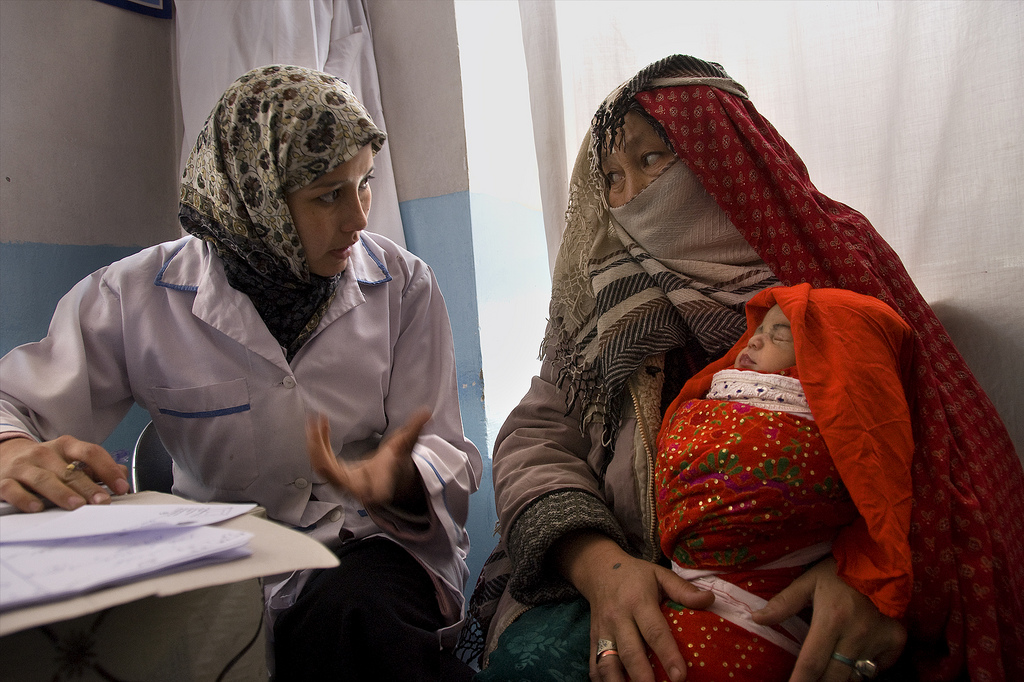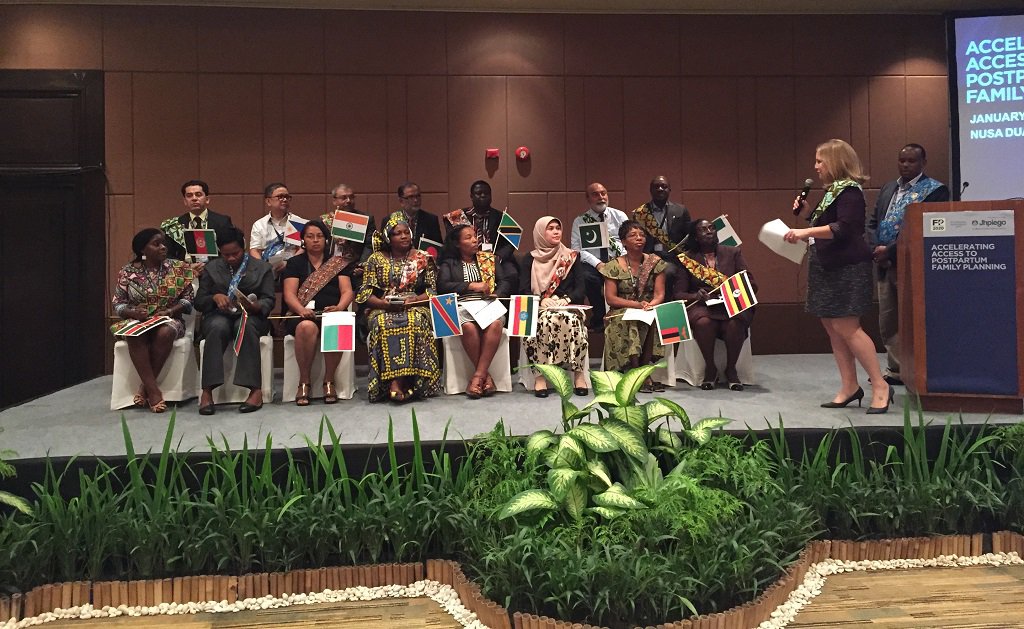This blog also appeared on the FP2020 website.
In a global health conference first, I attended a pageant at the International Conference on Family Planning this week in Nusa Dua, Indonesia. Replete with sashes and flags, representatives from 16 countries paraded onstage to the Olympics theme song. Although there were no fire breathers or piano players in the show, the delegates’ performances remained impressive: to provide updates made in accelerating access to postpartum family planning (PPFP) in their respective countries.
The group first met only seven months ago, in Chiang Mai, Thailand, to strategize about a missed opportunity in family planning—the period after a woman gives birth. Meeting participants from 16 countries left that meeting having developed country-specific plans to ensure that every woman be offered a means to prevent an unintended pregnancy in the two years following a birth. They recognized the need was great: globally, 65% of women in their first year postpartum have an unmet need for family planning. In just the 16 countries represented, there are 62 million births each year — which means 62 million opportunities to introduce PPFP!
Attendees were compelled by a global commitment through FP2020 to promote the rights of women and girls to determine freely and for themselves whether and when they want to have a child. They share the goal of reaching an additional 120 million women and girls in 69 countries with access to modern contraception without coercion and discrimination by 2020.

To achieve this global commitment, 16 countries took local actions:
Among them:
- Burkina Faso integrated PPFP training into medical, midwifery and nursing schools, creating a new generation of PPFP champions;
- In the Philippines, the postpartum IUD is now covered by PhilHealth, the national insurance scheme;
- Afghanistan trained 12 family planning trainers in PPFP/PPIUD and developed plans to train 115 health care providers from 23 provinces in 4 regions by next month; and
- In Kenya, the Ministry of Health led an effort to update national service delivery guidelines and training curricula for family planning to include PPFP.
(To learn more about country progress made since Chaing-Mai, click here.)
The sentiment is clear: local actions are positively disrupting the status quo for women and girls in the postpartum period. The coordinated movement that began in Chiang Mai is growing with unstoppable force. If the progress achieved these past seven months is an indication of the next seven, we are well on our way to ensuring that all women have the ability to choose the timing and nature of their next pregnancy.

